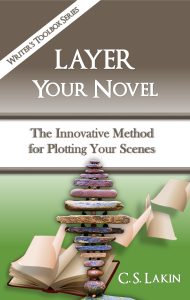The Intersection of Premise and Protagonist
UPCOMING: I’m doing a second workshop on crafting a terrific premise on February 21, 2-4 p.m. Pacific Time (it will be recorded, so you can watch it later if you can’t attend). Veteran literary agent Steve Laube will listen to your pitches and give some feedback and advice. Space is limited, so be sure to enroll ASAP. And bring your premise statement to share, and get tips on how to improve it!
Your premise and your protagonist go hand in hand. We’ve been looking at premise lately, and if you’ve been reading these posts (and if you attended last month’s premise Zoom session), you know how crucial it is to have a unique, strong premise.
A premise is not just a situation; it’s about how your protagonist is going to deal with it.
I can be in a bad situation, but I may do nothing about it. I’d be a very boring protagonist. Your protagonist shouldn’t be passive, reactive. She needs to be assertive and proactive. She might not be that way at the start of your story, but the inciting incident that occurs early on should spark a need and/or desire to do something about that situation.
Your protagonist needs to be just the right person to deal with the situation at hand. But so must all your other characters.
Your genre may inform some of the requisite characteristics of your cast of characters, but even within the bounds of genre you can still develop fresh, unique characters. Your readers deserve those elements of originality, so spend time on your characters and resist the default mode (stereotypes). And really, what’s more important is your premise.
Why is that? Can’t a great character alone sustain reader interest in a story? No, it can’t. At some point in your creative process, you have to come up with something that happens to and with your character. Something compelling. Something that compels the reader to want to follow this character on a journey of sorts.
Premise and Protagonist
How does premise come into play here? Remember: your premise lays out the situation your protagonist has to tackle. If you’re writing a novel about a group of scientists that are trapped in an orbiting space station and have to find a way to survive for three years before rescue comes, you first think about the skills and expertise those characters need to have. Without those skills, those characters wouldn’t be there. And believability is crucial in a story, whether a real-life one or a fantasy.
I see so many characters thrust into roles that they are wholly unqualified for. Characters cast as cops or doctors or investigators that have no smarts, no skills, no training. Characters who are presented as top litigators who can hardly utter an intelligent sentence.
While the real world does shock us with the level of incompetence and immaturity we see, for example, in our political realm, unless we are doing a spoof or sick comedy, it’s best to stick with the expected. It’s just more believable to have competent characters doing things that require expertise.
In the movie Taken, the father who tracks down his daughter’s kidnapper in France is a man perfectly suited for the task. But if Bryan Mills was a shy, fearful CPA instead of a former CIA operative with serious weapons and investigative chops, not to mention contacts in law enforcement in France, the entire premise would collapse. Our stories must be believable—which means our characters must be as well!
Ask questions of each of your characters. If you have a female captain of a space station, and she’s your main character in your suspenseful drama—the one who, in essence, saves the crew by her wits—she’s going to have some smarts.
It’s great to have some really cool characters, but that won’t get you very far.
At some point in your brainstorming, you will need to come up with a premise. Thinking up a terrific character, maybe even in an exciting situation, such as my lightning man at the top of the mountain, is just the start. It certainly isn’t enough to ensure you’ll have a great novel, movie, or play.
And you can’t really fill in your cast of characters until you have a strong concept based on a strong premise.
If you haven’t studied The 12 Key Pillars of Novel Construction and Layer Your Novel , you might not be familiar with these terms.
, you might not be familiar with these terms.
Your protagonist deals with the situation by pursuing a goal—the plot goal for the story. Unless you are writing an epic family saga or fictional biography, a novel (or play or movie) will cover a short period of time showing your hero going after that goal, which is resolved at the climax of your story (and after which the story quickly ends).
This is story structure in a nutshell, and if you aren’t well versed in it, I highly encourage you to make time to learn it before getting too deep into your writing. I recommend Michael Hauge’s best seller: Writing Screenplays That Sell. Yes, even if you’re writing a novel, this book is for you.
Your concept with a kicker is the unique, intriguing story you come up with to show your protagonist pursuing that goal amid high stakes and conflict, with a strong theme or moral dilemma at its heart.
Whether you start with a character, a concept, a premise, a theme, or some other element that sparks your desire to write a story, you need to flesh out these four pillars to some extent before you can fully create your cast.
This is because you can’t build on a nonexistent foundation. Your cast of characters must emerge out of the premise and plot. If you think up a group of random characters you like, but you don’t have a clear purpose for them to be thrown together, you won’t have a cohesive story. If you don’t have strong conflict and high stakes, you’ll have a lot of happy people in happyland doing meaningless, boring things, and readers will drift away.
Yes, great characters can be riveting all by themselves. K. M. Weiland says “When characters are vibrant and well-drawn, they enter that beautiful cycle of creating plot. . . . even in more literary-leaning books . . . the characters are vibrant enough to create a forward-moving plot out of even mundaneness such as farm chores.”
Very true. But if all we show in our novel is a family doing farm chores day in and out, well . . . you get my point.
 Key point: focus on the story! Your story is about one character pursuing a goal. Everything must orbit around that. If a secondary character starts leaving orbit and is heading to Mars, she is not helping. Reel her back in. Each character either helps or hinders the protagonist on her way to her goal.
Key point: focus on the story! Your story is about one character pursuing a goal. Everything must orbit around that. If a secondary character starts leaving orbit and is heading to Mars, she is not helping. Reel her back in. Each character either helps or hinders the protagonist on her way to her goal.
So take some time to hone that premise. Be sure you have a riveting one. Brainstorm the stakes and conflict so they’re sky high. It might help to use my 12 Key Pillars workbook, which has hundreds of brainstorming questions and checklists to help you flesh out your pillars.
When you’ve got these elements solidly structured, you’ll be ready to populate your story with just the right type and number of characters to do justice to it.
How does your plot and premise determine your key characters? Share some thoughts in the comments.
Be sure to sign up HERE for the upcoming premise and story pitch workshop. It will be held on Zoom, and you’ll get a chance to ask a top literary agent questions about pitching and querying and how to make your premise stand out!
Featured Photo by Luis Chacon on Unsplash











